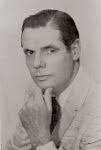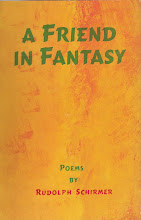
AGE QUOD AGIS
"Do and Be your Best"
Rudolph attended St. Mark's School in Southborough, Massachusetts. Children of privilege, in those days as today, went to fashionable prep schools to ensure that they would get the education and the social contacts needed for a successful life. It was in schools like these that lifelong friendships and alliances were made, extending through university and into the business world.
In the 30's, when Rudolph was there, the system sought to develop character in young men such as these, who had never, no would never have to struggle for a living. Old-fashioned values such as modesty, charity, honor, honesty and good sportsmanship were held on the same level as academics. Chapel (following the Episcopal tradition) was also mandatory, and according with the spirit of the culture, St. Mark's sought to instill basic Christian values. The Bible, as a religious text and as literature, was taught with reverence and rigor.
St. Mark's was modelled after the British system - instead of "grades", students progressed from sixth form (age 12) to first form (age 17). At the time Rudolph studied there, it was all boys -- shades of "Mr. Chips" -- and the student body, a reflection of the social strata in the outside world, would not have been very diverse.
Formality was de rigeur, and Rudolph most certainly dined in a setting similar to this one (the photo is undated). I am sure the food was not up to "Harry Potter" standards. Boys were addressed by their last names, and we can well imagine the young Rudy snatched from Socratic snooze with a stern "Schirmer!". Proper speech was stressed as well, and in the 1930's, a Mid-Atlantic accent was the dialect of choice. True to it's name, it is a blend of British (final "r's" are not pronounced) and refined American speech.
The classics were drilled on a daily basis, and boys of that time had to commit great speeches and verses to memory. In retrospect, Rudolph's high school education was probably comparable to that of the average four year college nowadays. They studied Latin, Greek and at least one other foreign language. To be sure, literature, history and the arts received the most careful attention, and as my travels with my father can attest, no era, epitaph, sculpture, symphony or sonnet went unexamined. To Rudolph, the education I received in the early 70's, considered to be first-rate, paled in comparison.
Rudolph's mother, Anne, would no doubt sweep in a few times a year to check on her beloved "Edwi" in between the busy social season in Manhattan and travels abroad. Most parents sent their children off to boarding school, and thus avoided the nightly nagging about homework that today's parents seem unable to escape.
Regarding the school motto, I would say that Rudolph did his best to live up to it. As Rudolph's father died the year he was born, St. Mark's most certainly provided, in the form of its teachers, a paternal presence for Rudolph, and it was from through these formative years that Rudolph's nobility of character was carefully molded.
Rudolph's younger half-brother, Philip Benkard, would follow in his footsteps at least a decade later.
(Photo Credit: Website - St. Mark's School, Southborough, MA)









No comments:
Post a Comment